Process Automation And Closed Loop Control Technology

Order Code: 22236220.3.28N
Category: General Lab Equipment V
Product Price: 4720.765$
Workstation Process Automation with IO2USB interface and matched control and training software: The workstation Process Automation offers a wide range of training possibilities, ranging from simple open loop control tasks to closed loop PID feedba...
SPECIFICATION
Workstation Process Automation with IO2USB interface and matched control and training software:
The workstation Process Automation offers a wide range of training possibilities, ranging from simple open loop control tasks to closed loop PID feedback control. It provides an optimum platform for lessons on open-/closed loop control systems. The workstation is equipped with two water tanks and various actuators/sensors and an operator panel for manual operation.
The included IO2USB interface makes all signals of the workstation accessible on the computer via the matched software. The software not only allows control of the system but also includes didactically conditioned exercises and solutions for several control situations. Tasks like open-loop and closed-loop controls can be edited. The software allows to work with the real workstation or with a simulated system.
Workstation features:
-
Automatic operation via external control system
-
Manual operation for test purposes possible
-
System hardware with two water tanks, v=9 1 (each)
-
Pressure transducer for measuring the level / level control
-
Flow rate sensors for flow measurement / flow control
-
Controllable pump with frequency converter
-
Frequency converter (control 0 - 10 V)
-
3 Centrifugal pumps
-
Additional circulation
-
Removable heating element for heating the water
-
Removable PT 100 temperature sensor
-
Detached radiator with at least two fans
-
2 manual control valves
-
3 level switches
-
3 signal lamps
-
5 control switches for manual operation
-
All control signals accessible via 4 mm safety sockets
-
Quick-connectors for hoses
-
User manual
-
Mains cable
-
Power supply: 230 V AC
-
Operating voltage: 230 V AC / 24 V DC
-
Dimensions (approx. nun) W=550 D=450 H=720
-
Weight: ca. 28 kg
-
102USB interface features:
-
Makes all signals of the workstation accessible in the training software
-
Can be used in experimenting frames (standard height A4)
-
Can be used as table-top device
-
Connection to PC: TCP/IP Modbus protocol
Software features:
-
In closed-loop control engineering level, flow and temperature control are available
-
Control with standard controllers P, I, PI, PID and two-point controller
-
Open- and closed-loop control: control with GRAFCET, control with logic-plans, level control, flow control, temperature control
-
Adjustable control: P-controller, PI-controller, Two-point controller, I-controller, PID-controller
-
Closed-Loop Control: choice of process, choice of controller, examine process and controlled system, graphical analysis of the stored measured values in a timing diagram, optimize closed loop control by changing the controller and the controller parameter
-
Open loop control with GRAFCET and Logic-Plans: editing control with GRAFCET- or logic-plans, activate GRAFCET- or logic-plans, testing and monitoring of the actual control
-
All signals can be plotted as a time based diagram. All plots are stored and may be evaluated while measuring, or afterwards.
-
Implementation of open-loop and sequence controls using GRAFC- or logic-plans for different exercises. The plans can be tested only with the real or the simulated workstation.
-
Educational material and exercises provided with the software
Possible applications:
-
Flow rate measurement at two different spots
-
Interface: Ethernet
-
8x analog inputs 0 — 10 V or 4 — 20 mA
-
4x analog outputs 0 — 10 V or 4 — 20 mA
-
8x digital inputs 24 V DC
-
8x digital outputs 24 V DC
-
Operating voltage: 24 V DC
-
All IO signals accessible via 4 mm safety sockets
-
Network cable included
-
2-point fill level control (discontinuous controller) can then be implemented without further options. Continuous fill level control by means of a pump or electrically controlled valve
-
Level control in conjunction with a pressure transducer and or flow control in conjunction with a flow sensor
-
Learning targets
-
Design and functional principle of process automation systems
-
Digital and analogue signal processing
-
Sensors and actuators in process automation
-
Functional principle and programming of (computer-based) control systems and open-/closed loop control systems
-
Functional principle of integrated guidance systems
-
Handling of human machine interfaces, process visualization
-
Describing processes and system components
-
Selecting suitable controls for process automation systems
-
Controlling process automation systems
-
Programming process automation systems and control systems
-
Commissioning automated systems
-
Troubleshooting and fault analysis in control systems
-
Presenting measured data in tables and graphics
-
Optimizing process automation systems
-
Becoming familiar with control types (2-position, P-, I-, D-controls and combinations of these)
-
Control adjustment procedures
-
Becoming familiar with as well as analyzing and optimizing controlled systems and control parameters
-
Parameters (process variables) and functional principle of
-
Fill level and flow rate controls by means of a controllable pump (and controllable valve)
-
Fill level and flow rate controls with the aid of a controllable valve (and controllable pump)
-
Flow rate control in the inflow and fill level control via the outflow (linked together)
-
Flow rate control acting as a disturbance variable on fill level control
-
Flow rate control 111 the outflow and fill level control via the inflow
-
Flow rate control by using the controllable pump
-
Flow rate control by using a controllable valve
-
Temperature control
-
control circuits
-
Running, monitoring and optimizing automated processes
-
Calculating and influencing process data while conducting the process
-
For this Item the supplier is required to:
-
Install the system
-
Commission the system
-
Give trainings for four (4) professionals at the site.
-
corresponding to the workstation 3.1
-
The process automation training course is designed for activity based lessons on control and feedback control technology
-
In a didactically pragmatic way, it allows you to:
-
create and test GRAFCET/logic plans (based on simulation/the real system)
-
Work with a simulated system
-
Perform control/feedback control on the actual workstation
-
Control fill levels, flow rates and temperature
-
Choose the regulator (2-point, P,1, PI, PID)
-
Freely configure regulator/regulator parameters
-
Choose the control loop
-
Perform inspections of the control loop, disturbance behaviour and control behavior.
-
Optimize feedback control
-
Produce graphical drawings and evaluations
-
Process Automation training course

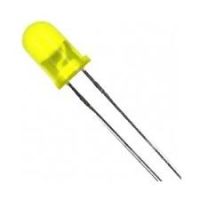
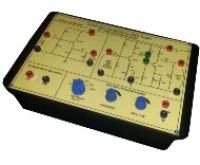
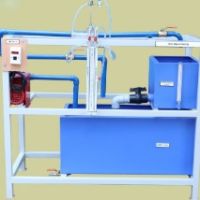
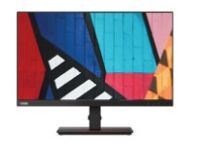
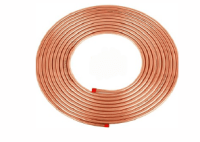
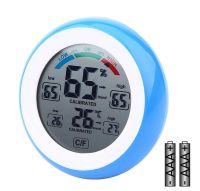
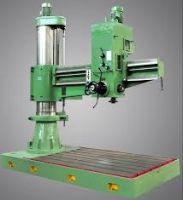
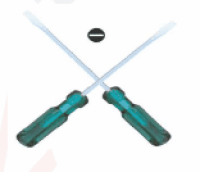

 91-9829132777
91-9829132777